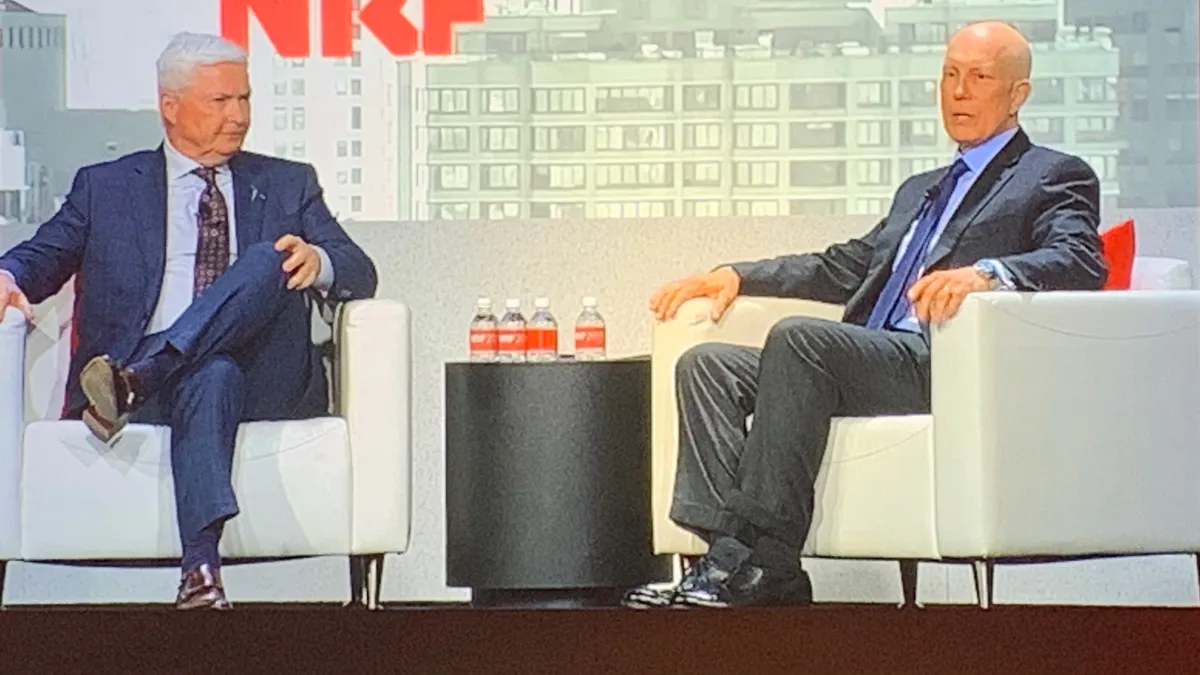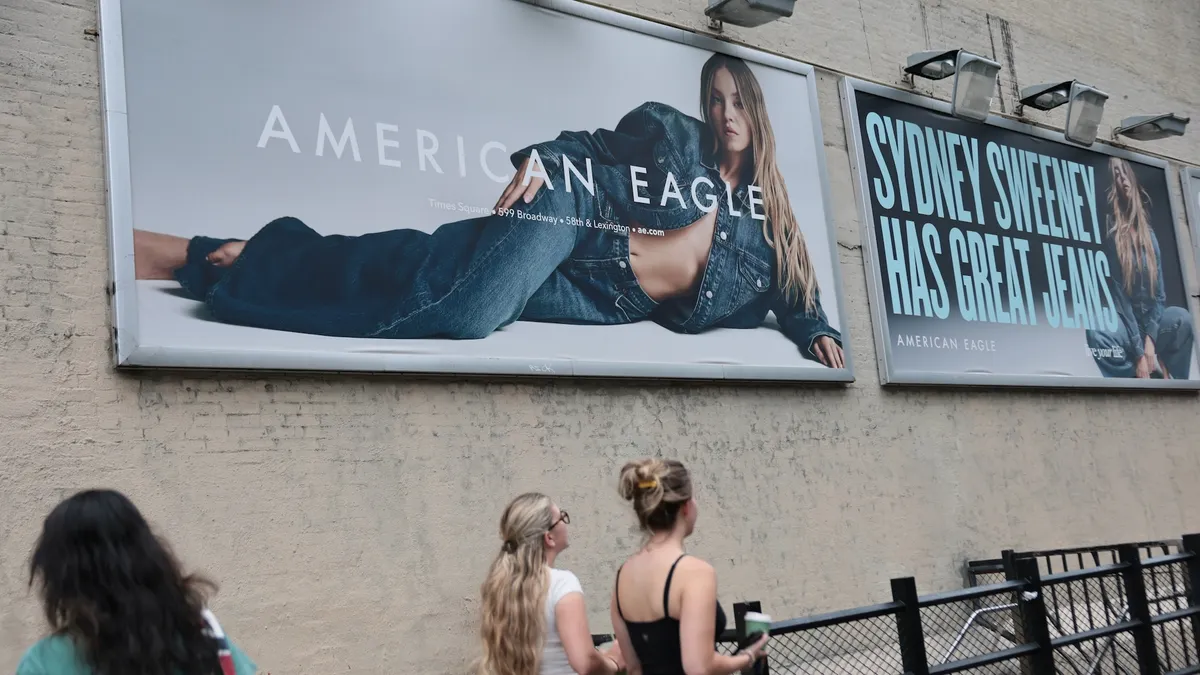NEW YORK — Retail may be a business, but day one of the National Retail Federation's Big Show wasn't all about money. The conference also touched on philosophical questions about what it means to be a good leader and what a retailer's role in social issues should be — and there were multiple CEOs standing by to answer those questions.
Dick's Sporting Goods Chairman and CEO Edward Stack was front and center for one such discussion, as was the company's decision almost a year ago to stop selling assault-style rifles at its Field & Stream stores after the high school shooting in Parkland, Florida. The retailer also ended firearm sales to anyone under the age of 21 at the time, and though there has been some backlash, Stack said he would do it all again.
"We found out that we sold that kid a shotgun two months before the shooting," Stack said at a panel with NRF President and CEO Matthew Shay, noting that they check after every major shooting to see if they sold any guns to the assailant. "It wasn't the gun that was used in the shooting, but it could have been. And it was at that point that I said: 'This system is not working and we need to say something.'"
The fight against gun violence is a particularly controversial issue, and one that's often drawn along political lines. While that doesn't mean consumers want retailers to ignore it — in fact, a study from last year showed that the majority of shoppers do want retailers to take a stand on political issues — it does mean that retailers run the risk of turning away a group of consumers whose views don't align with those the retailer supports.
Stack acknowledged that the move "had a significant impact on our business," but he also said that the entire management team, as well as the board, stood behind their decision to take a stand, and noted that Dick's had raised its guidance the last three quarters in a row.
"The right decisions are never tough decisions," Stack said, encouraging retail leaders to follow their gut on what the right thing to do is. "Leadership is pretty easy if you just go down the right path," he added.
For Dick's Sporting Goods, the opportunity to take a stand came naturally — from a product they sold. But not all retailers have a clear path toward authentic, meaningful impact. Levi Strauss CEO Chip Bergh pointed out that his company has no relation to guns, but Levi's is still making efforts to contribute to the movement, and did the same when President Trump announced his immigration ban.
"Levi Strauss was founded by an immigrant, as were a lot of great companies in this country, so we immediately took a stand against the immigration ban, mostly for human rights reasons," Bergh said, adding that CEO's have a "responsibility" to give back.
Bergh showed up to the conference in jeans and a flannel, preaching a similar message to the one then-President of Global Brands James Curleigh did last year — a message focused on inclusivity and unification at a time when many feel divided.
In addition to standing up on social issues, Bergh also discussed how Levi's is trying to stay relevant by being a part of the cultural conversation wherever it's located. The retailer's new Times Square flagship, announced in 2017, has already seen a diverse group of customers, both in terms of age and nationality, which Bergh sees as a positive sign that the company is becoming more relevant to all ages.
"We are at our very best when we're at the center of culture," he said, noting that the retailer has been showing up at popular music festivals across the globe. The aim is to connect with local cultures and spread loyalty for a brand that was once so iconic that Bergh's Levi's were stolen out of a hostel in Europe in lieu of his wallet, according to a story he told panel attendees.
Being a socially conscious retailer also comes down to how a company treats its employees, though. Hubert Joly, chairman and CEO of Best Buy, said he's driven by a series of convictions that inform his decisions, one of which is that the purpose of a company is not to make money, but "to somehow contribute to the common good."
"As a leader, irrespective of where you are at the company, you have to be aware of the seduction of power, fame, glory or money. If you're mainly driven by any one of these four, bad things happen," Joly said, adding that the principal role of a leader is to create an environment where others can succeed.
At Best Buy, that meant giving employees more parental leave and setting up a childcare system they can use as a backstop if their own childcare falls through, among other things, ensuring employees can "comfortably work," Joly said.
"Miracles happen if people are happy at the company."
























